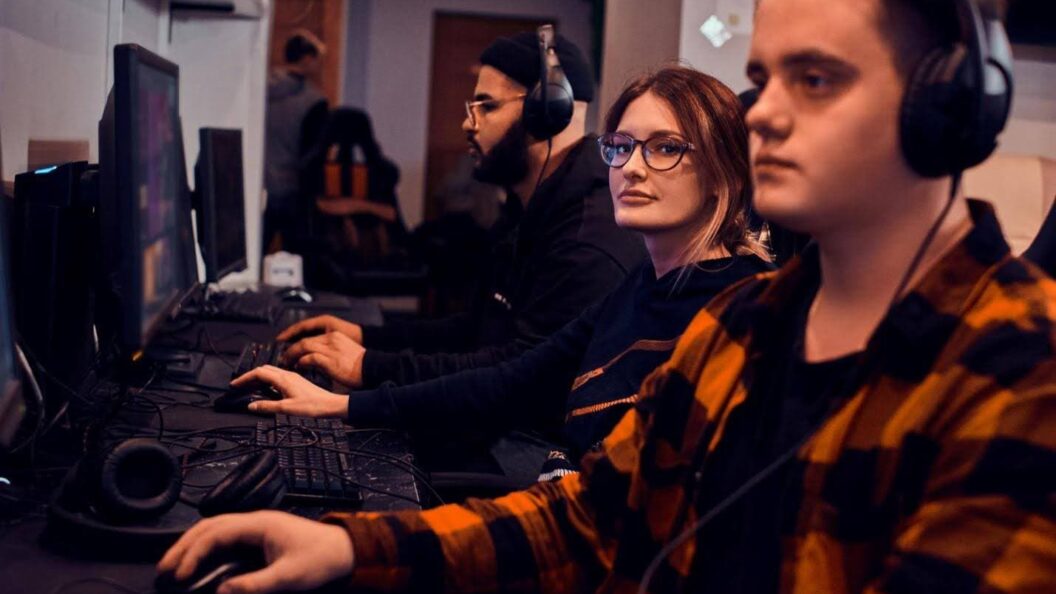Online gaming has undergone a remarkable transformation over the years, not only in terms of graphics and gameplay but also in the way players connect and interact. The birth of online gaming communities has added a new dimension to the gaming experience, creating a virtual space where enthusiasts can share their passion, skills, and camaraderie. This article delves into the evolution of these communities, examining the pivotal moments and trends that have shaped the landscape for gamers worldwide.
Emergence of Multiplayer Online Games
The late 1990s marked the inception of multiplayer online games (MOGs), paving the way for the first online gaming communities. Titles like “Quake” and “Diablo” allowed players to connect via the internet, transcending the confines of single-player experiences. This era laid the groundwork for what would become a flourishing ecosystem of online communities.
With the advent of MOGs, gamers experienced a paradigm shift from solitary gaming experiences to collaborative ventures. The thrill of competing against real human opponents added a layer of unpredictability and excitement. Early adopters of online multiplayer gaming found themselves forging connections with like-minded individuals, forming the bedrock of the future gaming communities.
The emergence of MOGs revolutionized the way games were played and created a demand for communication and collaboration tools. This demand led to the development in-game chat systems and, eventually, third-party voice communication software. Gamers could now strategize, coordinate, and build alliances in real time, laying the groundwork for the social dynamics defining future gaming communities.
Rise of Forums and Clan Culture
As online gaming expanded, so did the need for platforms where players could exchange strategies, discuss in-game events, and form alliances. Forums became the go-to spaces for these discussions, giving rise to the clan culture. Gamers would join forces, forming clans or guilds to collaborate in virtual adventures. Titles like “World of Warcraft” and “Counter-Strike” saw the formation of massive online communities, each with its unique identity.
These forums served as a virtual meeting ground and as repositories of knowledge. Players shared tips, tricks, and hacks, fostering a culture of collective learning and improvement. The sense of belonging to a specific gaming clan or forum created a virtual family, where members supported each other not only in the digital realm but often extending to real-life friendships.
Social Media Integration
With the advent of social media in the mid-2000s, online gaming communities underwent a paradigm shift. Platforms like Facebook and Twitter became hubs for gamers to connect, share experiences, and coordinate gameplay. Seamlessly integrating gaming profiles with social media accounts enhanced the sense of community, blurring the lines between the virtual and real worlds.
Social media platforms provided a broader canvas for gamers to showcase their in-game achievements and connect with a global audience. The visibility of gaming as a mainstream hobby grew, breaking down stereotypes and fostering a sense of pride among the gaming community. The evolution of online gaming communities now had a new dimension that extended beyond the confines of specific gaming platforms.
Streaming and Content Creation
The rise of streaming platforms, notably Twitch, brought forth a new era of community engagement. Gamers transformed into content creators, broadcasting their gameplay, tutorials, and reviews to a global audience. This shift amplified the visibility of individual gamers and fostered the creation of dedicated fan bases and communities around specific streamers.
Diversity and Inclusivity
In recent years, the gaming community has witnessed a significant push towards inclusivity. Game developers and community leaders have actively worked to create spaces that welcome players of all backgrounds, genders, and skill levels. This commitment to diversity has enriched the gaming experience, fostering a more supportive and vibrant online environment.
The Impact of Esports
Esports, competitive gaming at a professional level, has played a pivotal role in shaping online gaming communities. The emergence of leagues and tournaments has united players worldwide, turning gaming into a globally celebrated sport. Esports communities thrive on the competitive spirit, bringing together players, fans, and sponsors to celebrate skill and strategy.
Virtual Reality and the Future

As technology advances, virtual reality (VR) has begun to make its mark on online gaming communities. VR headsets enable players to immerse themselves in a three-dimensional gaming experience, fostering a greater sense of connection. The future holds the promise of more interactive and realistic online communities where gamers can interact in ways previously unimaginable.
Conclusion
From humble beginnings in the late 1990s to today’s immersive and interconnected communities, online gaming has come a long way. The evolution of online gaming communities reflects technological advancements and the ever-changing dynamics of player interactions. As we look towards the future, one thing remains clear – the journey of online gaming communities is an ongoing saga, with each chapter bringing innovations, challenges, and opportunities for gamers to connect and thrive.
In conclusion, the evolution of online gaming communities mirrors the evolution of gaming. This dynamic and ever-expanding universe continues to captivate and unite players from around the globe.
